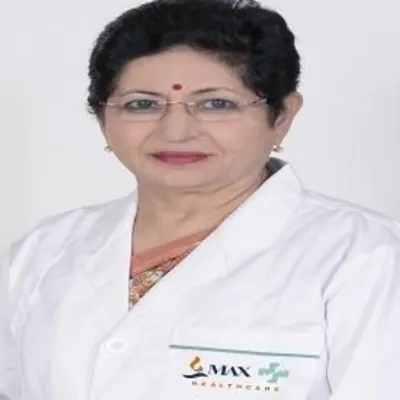Best Orthopedic Surgeons in Artemis Hospital Gurgaon
 17 December,2025
Read More
17 December,2025
Read More
Starting From: USD 1500-3500
Procedure Type: Medical Management
Hospitalization Days: - Days
Procedure Duration: - Hrs
Success Rate: 50%
In Vitro Fertilization (IVF) is affordable in India. The cost of In Vitro Fertilization (IVF) in India lies between USD 1500-3500. The exact procedure price depends on multiple factors such as the surgeon's experience, type of hospital, severity of the condition, patient's general condition,�etc.
IVF (in vitro fertilisation) is a form of assisted reproductive technology (ART). This medical procedure helps couples struggling to conceive naturally. It involves fertilising eggs with sperm in laboratory conditions outside the body.
After successful fertilisation, doctors transfer the resulting embryo to the woman's uterus to bring about a pregnancy. Medical professionals recommend IVF for patients experiencing infertility from various underlying conditions. This knowledge is essential to know the IVF cost in India.
Before understanding IVF treatment costs in India, knowing whether you need it is important. IVF is a suitable option for individuals or couples facing various fertility challenges. Here are some of the usual candidates:
1. Women with Blocked or Damaged Fallopian Tubes
2. Women with Ovulation Disorders
3. Couples with Male Factor Infertility
4. Individuals with Unexplained Infertility
5. Couples Opting for Embryo Freezing, Donor Eggs, or Surrogacy
6. Those with a History of Multiple Miscarriages
Additional Considerations
A lot of couples who wish to conceive may be looking at IVF treatment options and costs. The IVF cost in India varies based on the clinic and the doctor’s expertise. It also depends on the procedure type and additional medical requirements.
Below is an estimated price range for IVF procedures in India:
These costs may vary according to the number of cycles and types of procedures.
|
Procedure |
Cost in INR |
Cost in USD |
|
Standard IVF Cycle |
INR 1,00,000 – INR 3,00,000 |
USD 1,150 – USD 3,450 |
|
IVF with ICSI |
INR 1,20,000 – INR 2,70,000 |
USD 1,380 – USD 3,105 |
|
IVF with Donor Eggs |
INR 1,80,000 – INR 3,00,000 |
USD 2,070 – USD 3,450 |
|
Frozen Embryo Transfer (FET) |
INR 35,000 – INR 1,00,000 |
USD 410 – USD 1,150 |
|
Pre-implantation Genetic Testing (PGT) |
INR 12,000 – INR 50,000 per embryo |
USD 140 – USD 600 per embryo |
Several factors affecting IVF Treatment Cost in India:
Advanced techniques like Intracytoplasmic Sperm Injection (ICSI) or Pre-implantation Genetic Testing (PGT) may increase costs.
Premium fertility clinics with cutting-edge laboratories and internationally accredited standards generally have higher costs.
Experienced IVF specialists with high success rates and international training may charge premium consultation and procedure fees.
Ovarian stimulation drugs and hormone injections can cost INR 50,000 – INR 80,000 per cycle.
Success rates vary; some patients may require multiple cycles, adding to the total cost.
Using donor gametes or opting for surrogacy will significantly increase the overall treatment cost.
Due to operational costs, IVF clinics in metropolitan cities like Mumbai, Delhi, and Bangalore charge more than those in smaller towns.
Below is an overview of IVF costs in India's top 10 cities. USD equivalents are approximate and subject to currency fluctuations.
|
City |
Min Cost (INR) |
Max Cost (INR) |
Min Cost (USD) |
Max Cost (USD) |
|
Delhi |
INR 1,20,000 |
INR 2,50,000 |
USD 1,380 |
USD 2,875 |
|
Mumbai |
INR 1,50,000 |
INR 3,00,000 |
USD 1,725 |
USD 3,450 |
|
Bangalore |
INR 1,50,000 |
INR 4,50,000 |
USD 1,725 |
USD 5,175 |
|
Chennai |
INR 95,000 |
INR 2,75,000 |
USD 1,093 |
USD 3,163 |
|
Hyderabad |
INR 1,20,000 |
INR 2,40,000 |
USD 1,380 |
USD 2,760 |
|
Kolkata |
INR 85,000 |
INR 2,30,000 |
USD 978 |
USD 2,645 |
|
Pune |
INR 1,50,000 |
INR 2,50,000 |
USD 1,725 |
USD 2,875 |
|
Indore |
INR 1,00,000 |
INR 2,00,000 |
USD 1,150 |
USD 2,300 |
|
Bhopal |
INR 80,000 |
INR 1,80,000 |
USD 920 |
USD 2,070 |
|
Coimbatore |
INR 1,00,000 |
INR 2,50,000 |
USD 1,150 |
USD 2,875 |
|
Country |
Cost Range (USD) |
|
India |
USD 1,500 – USD 3,500 |
|
Turkey |
USD 2,500 – USD 4,000 |
|
Thailand |
USD 3,000 – USD 7,500 |
The cost of an IVF cycle in India includes several additional expenses beyond the basic cycle cost. These expenses can vary based on individual needs and circumstances.
1. Consultations and Diagnostic Tests:
2. Diagnostic Tests:
Most major Indian hospitals accept domestic and international insurance for IVF costs in India. Always verify in advance whether IVF procedures are included in the policy. You can also confirm how much of the procedure the insurer covers. Keep an eye on potential deductibles or co-pays.
Some hospitals also offer payment plans or medical loans, easing the immediate financial burden. Discuss these options beforehand to clarify any hidden charges or coverage caps.
Patients can also explore:
If you’re considering IVF, India offers world-class treatment at a fraction of the cost compared to Western countries. Consult an expert today!
Undergoing IVF treatment can be a huge investment. Follow these practical tips to save on your IVF treatment costs and be worry-free:
Choosing to go through IVF treatment can be a big emotional roller coaster for you and your partner. It's not merely clinical procedures and medical jargon—it's about clinging to hope and finding inner strength. It is nurturing the dream of bringing a child into your life. We at Medijourney get it. We've seen firsthand the emotional toll, physical demands, and financial strain that fertility treatments can put on you.
From day one, we'll connect you with top-notch fertility experts and reproductive medicine doctors. But we're not just about science. Our team genuinely wants to see you succeed. No two paths to parenthood look the same, right? So, we customize our approach to fit your unique situation.
As a trusted leader in medical tourism, Medijourney offers expert treatment and takes care of everything so you can focus on what truly matters. Let us start your fertility journey and help you experience the best. Contact us today to learn more about the IVF cost in India.
Answer: The average cost of an IVF cycle in India is between 1,00,000 and 3,00,000 INR (1,500 - 3,500 USD). This cost varies according to several factors, including the type and city of the hospital you choose and the number of cycles you need.
Answer: The factors affecting IVF treatment cost in India include:
Answer: The type of IVF procedure significantly impacts the cost of an IVF cycle in India. ICSI, or Intracytoplasmic Sperm Injection, is more expensive than other conventional options. Additional lab techniques in the former treatment add to the overall cost.
Answer: The base IVF cost in India usually covers the following:

Senior Director
Gynecologist and Obstetrician, IVF Specialist
Max Super Speciality Hospital, Shalimar Bagh, New Delhi

Senior Director
Gynecologist and Obstetrician, IVF Specialist
Max Smart Super Speciality Hospital, Saket, New Delhi

Senior Consultant
Gynecologist and Obstetrician, IVF Specialist
SIMS Hospital, Vadapalani, Chennai
Doctor of Pharmacy
Dr. Deepanshu Siwach is a skilled clinical pharmacist with a Doctor of Pharmacy degree.?He has 4+?years of experience and has worked with thousands of patients. He has been associated with some of the top hospitals, such as Artemis Gurgaon.
Dr. Deepanshu Siwach is a skilled clinical pharmacist with a Doctor of Pharmacy degree.?He has 4+?years of experience and has worked with thousands of patients. He has been associated with some of the top hospitals, such as Artemis Gurgaon....
Dr. Parul Katiyar is a renowned and experienced IVF Specialist with an experience of 21 years. Her expertise encompasses a wide range of areas including PCOS, Reproductive Endocrine disorders, Male infertility, Endometriosis, Fertility Preservation, ICSI...
The Art of Effective Communication
 17 December,2025
Read More
17 December,2025
Read More
 16 December,2025
Read More
16 December,2025
Read More
 10 December,2025
Read More
10 December,2025
Read More
 09 December,2025
Read More
09 December,2025
Read More
 05 December,2025
Read More
05 December,2025
Read More
 04 December,2025
Read More
04 December,2025
Read More